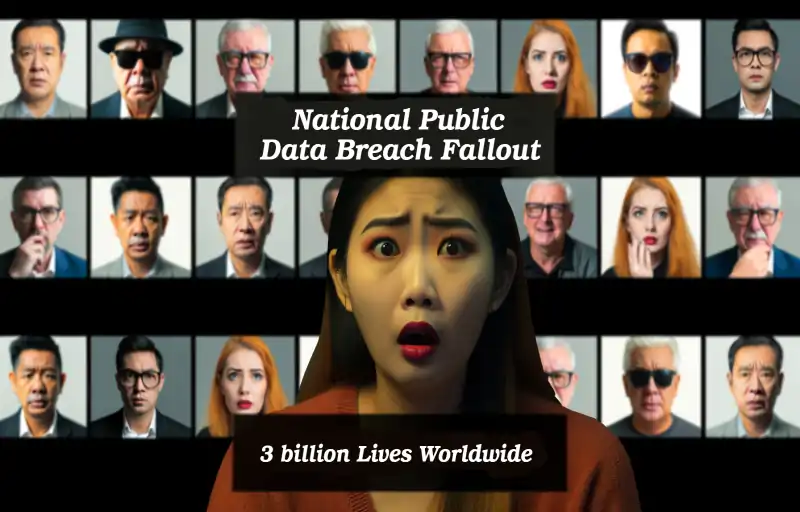
“National Public Data Breach: Exposing 3 Billion Lives, Shattering Trust in Data Privacy”
Analyzing the Impact of the National Public Data Breach on Global Cybersecurity Measures
In one of the most significant data breaches ever recorded, nearly 3 billion individuals have had their personal information compromised. The source of this massive breach is National Public Data, a company specializing in background checks and fraud prevention. This incident not only highlights the vulnerabilities in our digital infrastructures but also raises profound concerns about privacy rights and data protection on a global scale.
The breach was first brought to public attention through a class action lawsuit filed in Florida. As details emerged, the cybersecurity community was left reeling. The stolen data isn’t just superficial contact information; it includes full names, extensive historical addresses, Social Security Numbers, and even details about family members. This depth and breadth of information make the breach not just a privacy nightmare but a potential avenue for identity theft and fraud on an unprecedented scale.
What makes this breach particularly insidious is the nature of the data collection by National Public Data. Many individuals affected by this breach might not even be aware that their data was being collected, as the company is reported to have scraped personally identifiable information from various non-public sources without obtaining explicit consent from the individuals involved. This practice throws into sharp relief the often opaque nature of data collection practices and the need for more stringent regulatory oversight.
The breach was publicly disclosed when a threat actor, known by the moniker “USDoD,” advertised a database containing 2.9 billion records on a popular dark web site known as Breached. The asking price? A staggering $3.5 million. This sale not only underscores the lucrative nature of stolen data but also the brazenness with which cybercriminals operate.
Comparatively, this breach’s scale is akin to the infamous Yahoo data breach of 2013, which also impacted around 3 billion accounts. However, the type of data involved in the National Public Data breach makes it potentially more damaging. Nearly 40% of the world’s population could be affected, making it a global issue that transcends national boundaries.
This incident has inevitably led to a call for stronger cybersecurity measures worldwide. It serves as a stark reminder that cybersecurity is not just about protecting data but also about safeguarding fundamental human rights in the digital age. Governments, corporations, and individuals must collaborate more closely to establish robust defenses against such breaches. This includes not only improving technical safeguards but also ensuring there are stringent penalties for unauthorized data collection and a higher standard of accountability for protecting personal information.
This breach could serve as a catalyst for broader changes in how personal data is handled globally. There needs to be a shift towards greater transparency in data collection practices and perhaps a reevaluation of how much personal information should be available to private companies. Additionally, this incident might accelerate the adoption of more advanced security technologies such as blockchain, which offers enhanced security features that could prevent such breaches from occurring in the future.
While the National Public Data breach is undoubtedly a disaster, it may also mark a critical turning point in how we approach cybersecurity and data privacy. It highlights the urgent need for an updated framework that can keep pace with the evolving digital landscape and protect individuals against such invasive breaches. As we move forward, one can only hope that this incident serves as a wake-up call prompting immediate and effective actions to safeguard our digital identities.














